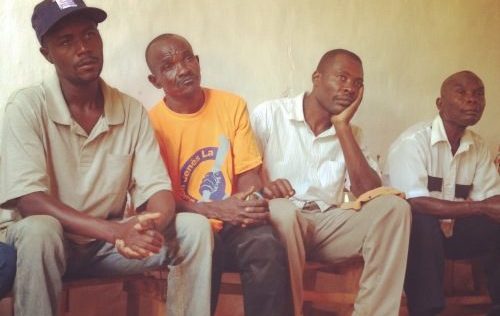I was in the middle of a boring class and unfortunately I was the teacher.
My nightmare is to have too many people nod in agreement while I am speaking. If everyone already agrees with you, it feels comfortable like a warm hug on a sunny summer day. A great recipe if you are trying to have everyone enjoy a luxurious long nap.
Bloody terrible for a memorable teaching moment.
How do you think about the poor?
The people in front of me were preparing to get involved in poverty reduction. They figured that they knew more about poverty and travel than 90% of their friends and family and they were used to being the experts. They were not yet practitioners, but they knew the language, they understood the stats, they had made some visits. Everyone in the room identified with the poor. They felt their pain.
The problem was everyone in the room thought they already ‘got’ what I was teaching.
I was talking about how many people think about the poor. How we see their needs more than we see them as people. The students were nodding in agreement with me. It was terrible.
This is one of the toughest groups to train. People who quickly agree with you have invariably mentally checked out. I could read the thoughts coming from some of their heads, “I hope so-and-so is listening to this, THEY really need to understand!”
My friend Paul once taught me a technique I still use. Great teachers will occasionally create some tension and disagreements in the classroom. Everyone pays attention to an argument. The problem was that I couldn’t find someone to disagree with me. Everyone was being too agreeable – thus boring class. Here is a hint, if you ever find yourself falling asleep in class, vehemently disagree with the prof. It will make the time go by a lot faster!
I felt like I was becoming the kind of teacher I hated – a fool blathering about things everyone already knows.
As I tried to push people to think a little different about the poor, suddenly I caught a little break. A great student began to speak, she said “I understand the poor, I was recently spending time with some poor people and they began to complain about their poverty. So that’s when I told them “In many ways you are better off than me.’ …”
How would you respond?
Would you trade places?
If you wouldn’t trade, then the poor people you are talking about are probably not really better off than you. Sure you may admire or even want some parts of their life or their community, but that is not the same as saying you are actually better off than me. That rings hollow.
That brings me to my point. The #1 worst way to think about the poor is that “The poor are victims waiting for our help“. Most international workers have learned how offensive and destructive this is.
The solution is not to try to think of the poor through the exact opposite lens. If you do, you will hit the #2 worst way to think about the poor. “The poor are magically noble.” People who have worked with the poor for a short time will say things like:
- The kindest person I ever met is homeless
- The poor are so noble and super inspiring
- The people in [insert poor country here] are the friendliest people you will ever meet!
- On the street, they really know how to give
Is it true that the poor are inspiring?
Sure, sometimes, just like any group. But I am suspicious of any sweeping generalization. Places with extreme poverty also have people who want to manipulate and rip you off. Platitudes about the poor that ring hollow don’t help. The poor are not some second-coming of Gandhi, Buddha, Robin Hood and Jesus.
Stereotypes rip people off from real friendships
To deal with poverty we must stop all one-dimensional versions of the poor. Negative and positive. The people who make a difference in poverty are the people who see the poor as friends people. Actual friends people. Occasionally witty, sometimes annoying. Like your friend who is always late, the one your mom likes, the one who forgets your birthday, the one who always calls you to go for lunch at the exact right moment.
People we want to share our lives with. Real. People. Just like you or me.

